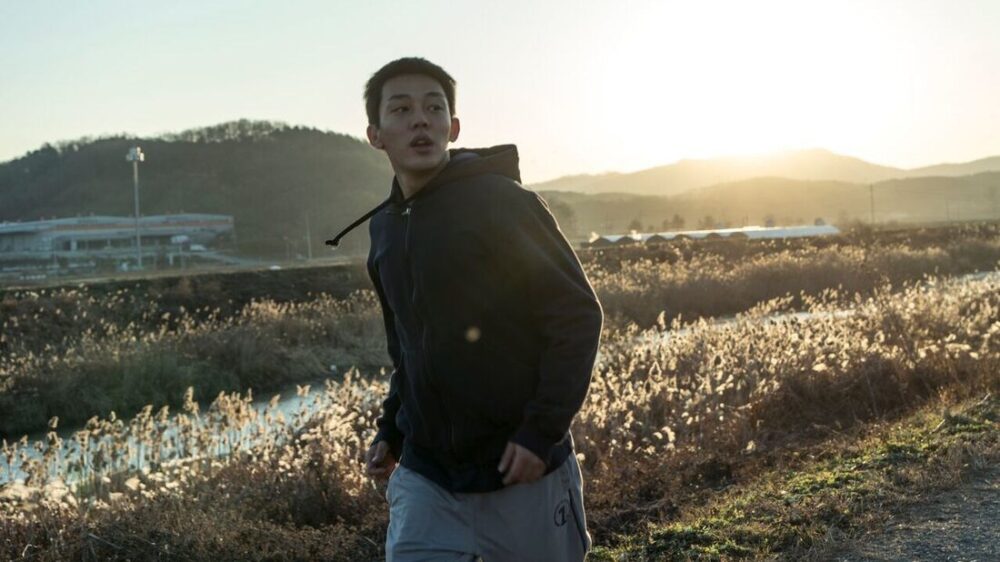A Great Hunger by Selam G. '18
an artisanal take on my quarter life crisis

The three main characters from the film Burning
In Lee Chang-dong’s film Burning, there is a concept of a “Little Hunger” and a “Great Hunger”. The Little Hunger is the desire for the material, basic needs and beyond, where the Great Hunger is a deeper search for meaning and understanding in life. The film is oriented around this theme, demonstrated by the three main characters’ central drama. Who has the Great Hunger, and who has the Little Hunger? Does the Great Hunger dissolve when you think you have found the answer?
It’s a strange movie brimming with symbolism that leaves you unsettled when you finish it, and yet (for me at least) unable to stop thinking about it.
In reality I think we all have a little bit of both Hungers. On a practical level, we all have to feed our Little Hunger, which includes our literal hunger, to survive. But precisely because of that, we can let the Great Hunger disappear if we want; we can survive without it. I think I could describe the 7 years since I graduated (but especially the first 4 or so) as wishing my Great Hunger would disappear, since I was so frustrated to never find the answers. It distracted me from doing day-to-day work, since I felt like I was missing a central ‘why’. It distracted me from a straightforward career progression too–though I’m learning that there usually isn’t one anyway.
For this reason, it was refreshing to read a few posts from alumni who are now over 15 years from when they graduated. With 7 years post-grad, I’m still in the midst of figuring things out–trying to solve both Hungers, really. I realized I didn’t know what I wanted to write at first when Petey reached out for posts from blogger alumni. So I decided to use one of my tactics against writer’s block: pilfering through my “graveyard”, discarded posts or snippets that were never published. I had wanted to write for years about this transitional period, but couldn’t find the right words. Here’s a few words I did find:
When I was interviewed as part of my application to MIT, my interviewer [Chris D. ‘82] said something brutally honest that stuck with me. “For a long time,” he said, “MIT has recruited people who are great at what they do, technically capable, but don’t have dreams of their own. They are people who Harvard students hire to work on their dreams. I think now, MIT has started looking for people who have a lot of initiative; who will pursue their own dreams.”
Graduating college–or high school, or grad school, or whatever it is that might allow you to enter “the rest of your life”–is the condition of realizing how incomprehensibly long and vast life is, yet at the same time, how fleetingly short and finite. You wonder, at some 17-25 years old, how you will fill the blank canvas of 60 or 70 years ahead of you, and simultaneously, how you can ever possibly do enough with so little space.
My life is too short to change the world, too long to be only one thing, too fleeting not to enjoy myself, too massive to not have a plan.
When I graduated, I grasped the edges of my limitations–feeling like I couldn’t learn fast enough or work hard enough. After taking a role at a very early stage startup with frequent 14+ hour days and weekends, I knew I didn’t want that kind of schedule–which made entrepreneurship feel out of reach. But what would replace it? What was my dream, as an MIT graduate? Was I just too tired, at that point, to have one?
Part of what I’ve been struggling with alongside the Hungers is what I like to call “the Iron Man Problem” of MIT graduates (a problem that I have probably contributed to). The problem is that, as MIT’s reputation has grown in tandem with the technology industry, going from weird niche tech school à la Caltech01 To be clear, I say this with great fondness for Caltech, and places like Olin College or Harvey Mudd. I sincerely hope MIT continues to maintain the same spirit. toward a national higher education symbol like Harvard, the expectation is that the students are somehow uniquely different and adept from every other engineer in the country, even compared to other engineers from the top 10 or 20 schools (being able to build Iron Man suits overnight, for example).
Harvard has its roots in the humanities, squishier subjects where it’s harder to immediately evaluate someone’s performance the way you can in, say, a coding interview. Increasingly, I feel the weight of the Iron Man expectation. Are you allowed to make mistakes if you’re an MIT graduate, when you received such a coveted position? Will you have to live the rest of your life proving you deserved it?
I think now more than ever, this is something that concerns the last 10 years of graduates, amplifying the imposter syndrome that many of us will have, especially those of us who were told even before MIT that we could never be scientists, engineers, or mathematicians. Even if I had attended a different school, I can never look to the world to tell me I deserve my education or my career. Slowly I have realized that, to muster up the titanium spine, the unbreakable backbone I will need to continue in this field is no easy feat. As a high school student, I thought that graduating college was the final frontier, when in reality, it’s just the beginning.

Burning’s protagonist literally searching for something through fields
I found myself haunted by this as I bounced around various Boston startups and robotics roles. Was any of it good enough–my job, my output? It didn’t feel newsworthy or polished, I wasn’t an entrepreneur myself or a startup executive (what an expectation to have at 25) or even simply working at a big tech company. Perhaps the Iron Man expectation was that a sufficiently well fed Little Hunger should quiet the Great one, that it would prove some kind of meaning, at least to other people.
I had a perfectly decent career progression, built a sturdy resume, and began to look toward the next chapter. But after a while I felt like I didn’t know anymore how to distinguish between the Great Hunger of intellectual curiosity and a kind of depraved, capitalistic hunger for status. I call it depraved, the Little Hunger, and yet, like the many MIT Africans before me and beside me, I supported relatives and projects back home with the salary that I earned, and I was immensely proud of that. The other feeling that comes from having coveted privileges is a sense of duty, a mandate to do good in the world, one which I channeled to the Muti water project as an undergrad, and now use on the alumni board of the MIT Africa Impact Fund.
The Great Hunger was the question of whether I had chosen the right path with engineering,02 I still recommend a STEM education to anyone who can stomach it, since my classmates have proven you can do pretty much anything afterwards. In my opinion it’s a way to balance solving your 'little hunger' with leaving a door open for further opportunities, not too prescribed but not too open ended. whether I could or should find meaning in work. The Little Hunger had ballooned unsustainably, saying that wealth or status would be the thing that made me feel whole, and practically, would allow me to give more, provide more. In hindsight, I would say I struggled to balance (or even identify) the two Hungers, to feel fulfilled in all the different pieces of my life. I found it somehow unacceptable to just be a normal person who uses different parts of their life to fulfill these things, or to even seem average.
Faced with all these questions (amplified to the nth degree by 2020) I did what any person who pursued academic achievement for four-fifths of their life does: apply to graduate school.
I write to you from Pittsburgh, Pennsylvania, a few minutes from the Carnegie Mellon University campus, which I “deferred” a decade ago in favor of MIT. Guided by a gut feeling, I intentionally chose not to attend MIT for grad school, to see if a different environment and campus culture would coax something different out of me. In CMU I wanted a place where I hoped I could find academic and research redemption, where I could forge my titanium spine and emerge as the LinkedIn version of the Terminator (or something).
On paper, I achieved what I set out to do, getting grades and publishing papers, throwing them into the maw of my imposter syndrome. Yet the soft, human part of me persists, the Great Hunger, the emotions, my fear and empathy and love. The things that distract me from a robotic output of work.
So in my final semester at CMU, I am taking a course in art and ML (one that’s more art than machine learning) and a course in ethics and ML (that is heavy on the ethics). I am doing what I can to try feeding my Great Hunger. I am slogging through my job search, still not entirely certain where I’ll end up, but believing that I am capable and worthy, knowing I am so effective and credentialed that even if I just want a career to feed the Little Hunger, I will certainly obtain one. I am aware that this is a unique privilege, and I try to be quick to support others however I can.
In-between all that, I watch films and shows, procrastinate, do yoga, plan trips. I sleep, even if I’m staring down a deadline or haven’t been “productive enough” that day. I spend time with friends and family. I treasure the visits and calls with my long-distance fiancé, Victor S. ‘21. I try to cherish all the life that happens in the in-between, whether mundane or extraordinary.
And I try to respect my inner beasts, rather than fight them.
- To be clear, I say this with great fondness for Caltech, and places like Olin College or Harvey Mudd. I sincerely hope MIT continues to maintain the same spirit. back to text ↑
- I still recommend a STEM education to anyone who can stomach it, since my classmates have proven you can do pretty much anything afterwards. In my opinion it’s a way to balance solving your 'little hunger' with leaving a door open for further opportunities, not too prescribed but not too open ended. back to text ↑